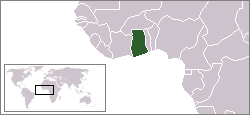
Lesbian, gay, bisexual, and transgender (LGBT) persons in Ghana face legal and societal challenges and discrimination not experienced by non-LGBT citizens.

Lesbian, gay, bisexual, and transgender (LGBT) people in Afghanistan face severe legal challenges and discriminations not experienced by non-LGBT residents. Afghan members of the LGBT community are forced to keep their gender identity and sexual orientation secret, in fear of harassment, intimidation, persecution, violence, and the death penalty. The religious nature of the country has limited any opportunity for public discussion, with any mention of homosexuality and related terms deemed taboo.

Lesbian, gay, bisexual and transgender (LGBT) rights in the United States rank among the highest in the world, with public opinion and jurisprudence changing significantly since the late 1980s. However, LGBT people and their rights have continued to face attacks from far-right groups and conservative politicians, particularly on a state level.
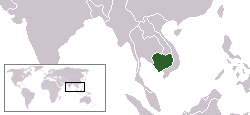
Lesbian, gay, bisexual, and transgender (LGBT) persons in Cambodia face legal challenges not experienced by non-LGBT residents. Same-sex sexual activity is legal in Cambodia. Cambodia provides no anti-discrimination protections for LGBT people, nor does it prohibit hate crimes based on sexual orientation and gender identity.

Lesbian, gay, bisexual, and transgender (LGBT) persons in Armenia face legal and social challenges not experienced by non-LGBT residents, due in part to the lack of laws prohibiting discrimination on the grounds of sexual orientation and gender identity and in part to prevailing negative attitudes about LGBT persons throughout society.

Lesbian, gay, bisexual, and transgender (LGBT) rights in Argentina rank among the highest in the world. Upon legalising same-sex marriage on 15 July 2010, Argentina became the first country in Latin America, the second in the Americas, and the tenth in the world to do so. Following Argentina's transition to a democracy in 1983, its laws have become more inclusive and accepting of LGBT people, as has public opinion.
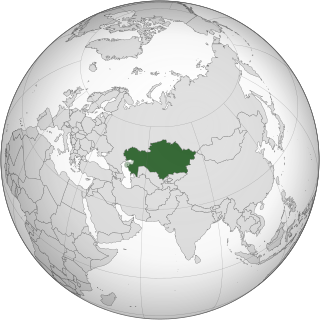
Lesbian, gay, bisexual, and transgender people in Kazakhstan face legal challenges not experienced by non-LGBT citizens. Both male and female same-sex sexual activity are legal in Kazakhstan, but same-sex couples and households headed by same-sex couples are not eligible for the same legal protections available to opposite-sex married couples.

Lesbian, gay, bisexual, and transgender (LGBT) rights in Angola have seen improvements in the early half of the twenty-first century. In November 2020, the National Assembly approved a new penal code, which legalised consenting same-sex sexual activity. Additionally, employment discrimination on the basis of sexual orientation has been banned, making Angola one of the few African countries to have such protections for LGBT people.

Lesbian, gay, bisexual, and transgender (LGBT) persons in Honduras face legal challenges not experienced by non-LGBT residents. Both male and female same-sex sexual activity are legal in Honduras.

Lesbian, gay, bisexual, transgender, intersex, non-binary and otherwise queer, non-cisgender, non-heterosexual citizens of El Salvador face considerable legal and social challenges not experienced by fellow heterosexual, cisgender Salvadorans. While same-sex sexual activity between all genders is legal in the country, same-sex marriage is not recognized; thus, same-sex couples—and households headed by same-sex couples—are not eligible for the same legal benefits provided to heterosexual married couples.

Lesbian, gay, bisexual, and transgender (LGBT) persons in the Dominican Republic do not enjoy the same rights as non-LGBT residents, and face legal and social challenges that are not experienced by other people. While the Dominican Criminal Code does not expressly prohibit same-sex sexual relations or cross-dressing, it also does not address discrimination or harassment on the account of sexual orientation or gender identity, nor does it recognize same-sex unions in any form, whether it be marriage or partnerships. Households headed by same-sex couples are also not eligible for any of the same rights given to opposite-sex married couples, as same-sex marriage is constitutionally banned in the country.

Lesbian, gay, bisexual, and transgender (LGBT) persons in Guatemala face legal challenges not experienced by non-LGBT residents. Both male and female same-sex sexual activity are legal in Guatemala.
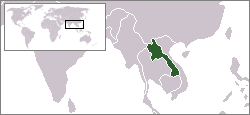
Lesbian, gay, bisexual and transgender (LGBT) rights in Laos go unreported and unnoticed. While homosexuality is legal in Laos, it is very difficult to assess the current state of acceptance and violence that LGBT people face because of government interference. Numerous claims have suggested that Laos is one of the most tolerant communist states. Despite such claims, discrimination still exists. Laos provides no anti-discrimination protections for LGBT people, nor does it prohibit hate crimes based on sexual orientation and gender identity. Households headed by same-sex couples are not eligible for any of the rights that opposite-sex married couples enjoy, as neither same-sex marriage nor civil unions are legal.
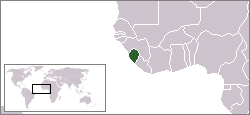
Lesbian, gay, bisexual, and transgender (LGBT) persons in Sierra Leone face legal challenges not experienced by non-LGBT residents. Male same-sex sexual activity is illegal in Sierra Leone and carries a possible penalty of life imprisonment, although this law is seldom enforced.
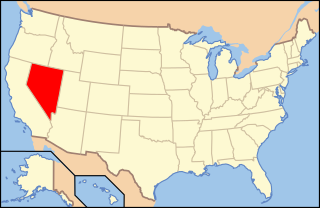
Lesbian, gay, bisexual, and transgender (LGBT) persons in the U.S. state of Nevada enjoy the same rights as non-LGBT Nevadans. Same-sex marriage has been legal since October 8, 2014, due to the federal Ninth Circuit Court of Appeals ruling in Sevcik v. Sandoval. Same-sex couples may also enter a domestic partnership status that provides many of the same rights and responsibilities as marriage. However, domestic partners lack the same rights to medical coverage as their married counterparts and their parental rights are not as well defined. Same-sex couples are also allowed to adopt, and state law prohibits unfair discrimination on the basis of sexual orientation and gender identity, among other categories, in employment, housing and public accommodations. In addition, conversion therapy on minors is outlawed in the state.

Lesbian, gay, bisexual, and transgender (LGBT) persons in New Jersey have the same rights as non-LGBT people. LGBT persons in New Jersey enjoy strong protections from discrimination, and have had the right to marry since October 21, 2013.

Lesbian, gay, bisexual, and transgender (LGBT) persons in the Marshall Islands may face legal challenges not experienced by non-LGBT residents. Same-sex sexual activity has been legal in the Marshall Islands since 2005, and discrimination on the basis of sexual orientation and gender identity has been outlawed in all areas since 2019. Despite this, households headed by same-sex couples are not eligible for the same legal protections available to opposite-sex married couples, as same-sex marriage and civil unions are not recognized.
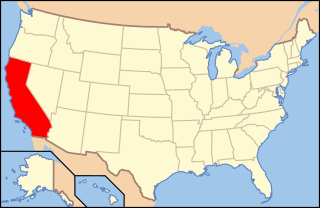
California is seen as one of the most liberal states in the U.S. in regard to lesbian, gay, bisexual, transgender (LGBT) rights, which have received nationwide recognition since the 1970s. Same-sex sexual activity has been legal in the state since 1976. Discrimination protections regarding sexual orientation and gender identity or expression were adopted statewide in 2003. Transgender people are also permitted to change their legal gender on official documents without any medical interventions, and mental health providers are prohibited from engaging in conversion therapy on minors.
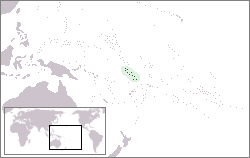
Lesbian, gay, bisexual and transgender (LGBT) people in Tuvalu face challenges not faced by non-LGBT people. Sections 153, 154 and 155 of the Penal Code outlaw male homosexual intercourse with a penalty of up to 14 years in prison, but the law is not enforced. Employment discrimination on the basis of sexual orientation has been banned since 2017.

In the U.S. Virgin Islands, Lesbian, gay, bisexual, and transgender (LGBT) rights have evolved substantially in recent years. Same-sex sexual activity has been legal since 1985, and also provides explicit legal protections against discrimination for LGBT residents since December 2022. Following the Supreme Court's ruling in Obergefell v. Hodges on June 26, 2015, which found the denial of marriage rights to same-sex couples unconstitutional, same-sex marriage became legal in the islands.




















